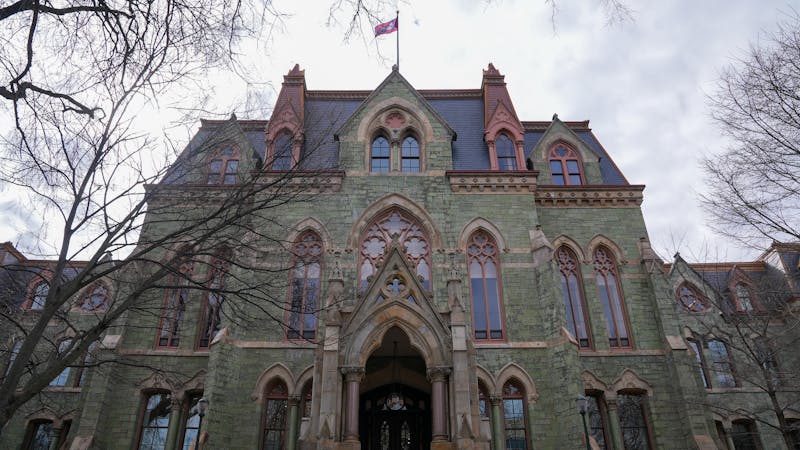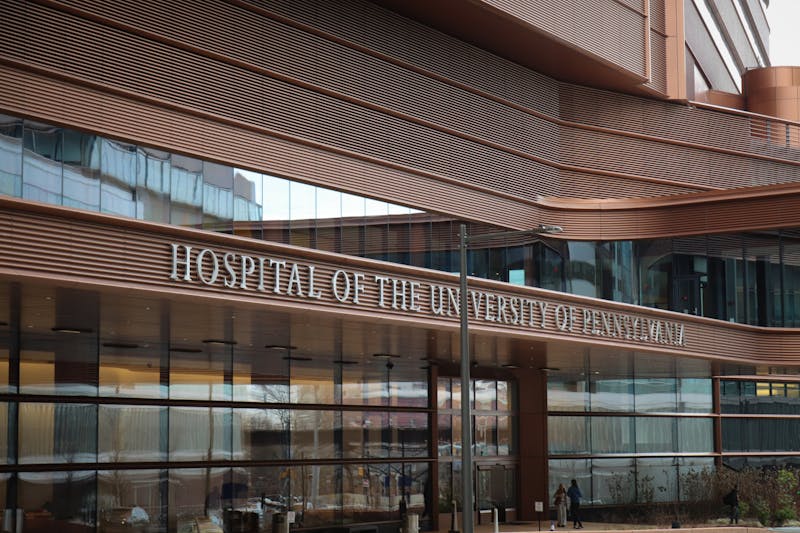
When I clocked into my work-study job on Jan. 21, I hadn’t remotely anticipated the inauguration of President Donald Trump to impact my $3,000 work-study award. I thought it had all been guaranteed to me — by the University, the financial aid office, and the program that hired me — that I would earn every penny of that $3,000 underlined in my financial aid letter. In other words, I thought the University had my back.
Two months later, I received an email from my boss stating that, after the week of March 24, I would no longer be able to claim the remaining work-study money left in my award, thanks to the University’s ongoing department and program budget reviews due to the Trump administration’s freezing of $175 million in federal funding to Penn. I had lost all the remaining money left in my work-study award and my job.
I’ve personally witnessed my program coordinator frantically running in and out of their office to meet with Penn’s Business Services, who were “running [them] line-by-line regarding the program’s expenses” and finding ways to preserve resources in spite of a University-wide funding cut toward departments and programs. My program’s faculty director, who wished to stay anonymous, said that many programs and departments had “expected the funding cuts to take place in the next fiscal year starting on July 1 and [were] spending their budget as such.”
March through April is usually when most programs and departments invoice for work-study, faculty salaries, graduation, and end-of-year student celebrations. However, program and departmental budgets were haphazardly cut by 5% by the University during the most expensive time of year, advertised as preemptive action against potential Trump endowment taxes or federal funding cuts. “Simply put,” my faculty director said, “the money still exists, but the University is pretending it doesn’t exist. It’s clogged.”
So unfortunately, my work-study job had to go, because the program contributed 50% of my salary. And so did the food and drinks for the program’s 2025 graduation commencement. This wasn’t just limited to my program — the McNeil building fell eerily silent the morning Penn announced a budget review process was to take place, with faculty directors from the departments of Urban Studies and Sociology to the behavioral science masters program sharing the same frantic story.
Penn is basing its speculation on uncertain potential endowment taxes or future federal funding cuts, knowingly or unknowingly preventing money from reaching the student population during a crucial time for them. The money is still there, but the University is pretending it doesn’t exist.
Don’t get me wrong, the threat of an endowment tax or further federal funding cuts is real. However, preemptive action shouldn’t start by cutting departmental funding by 5% effective immediately. Instead of using the Trump administration’s federal funding freeze as an excuse to play poor and cut funding during one of the most consequential times of the year, I implore the University to consider one place where its discretionary spending has quietly ballooned — administrative compensation.
In past financial crises, such as the COVID-19 pandemic, Penn took a similar approach in announcing a hiring freeze and program budget cuts. Penn also issued then-Penn President Amy Gutmann, who refused to take a pay cut despite a sizable financial impact, a $3.7-million home loan. The University had even cited monetary constraints when explaining why it cannot provide more financial aid to students, despite its $23-million payment to Amy Gutmann in 2021.
Current Penn President Larry Jameson has not yet gone on record to say he would take a pay cut, despite the financial crisis Penn is going through right now and despite making over $4.5 million. This is only part of the executive compensations “of current officers, directors, trustees, and key employees,” totaling over $53.2 million, according to Penn’s Form 990 for the fiscal year 2023. It confounds me how Penn is balancing its budget on the backs of students and staff rather than on its top administrators.
We deserve a University that honors its commitments — not just to its donors and trustees, but to the students it was built to serve.
DAVID TRAN is a first year from Fort Worth, Texas studying urban studies. His email is ddtran@sas.upenn.edu.
The Daily Pennsylvanian is an independent, student-run newspaper. Please consider making a donation to support the coverage that shapes the University. Your generosity ensures a future of strong journalism at Penn.
Donate












